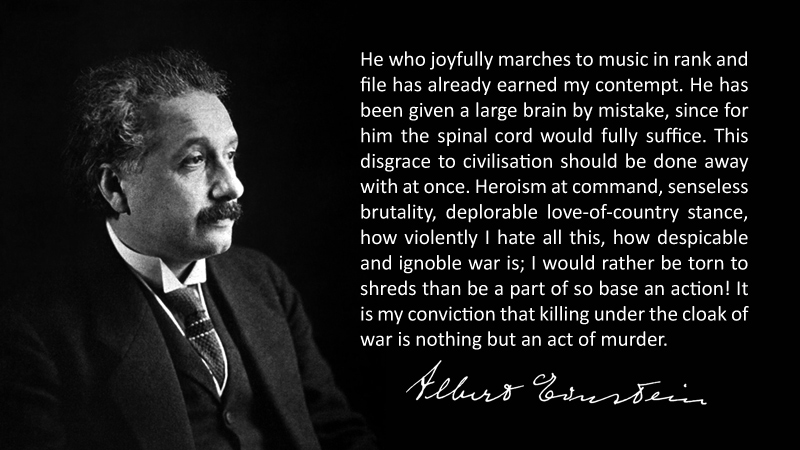
Many of us are very familiar with the equation E=MC2 and the many pictures of the wild-haired scientist who created it, but what do you know about Albert Einstein’s life-long passion for music?
Read also: Albert Einstein Musical Facts
Albert Einstein and Music
Like many notable scientists, Albert Einstein was not only an outstanding physicist and mathematician, he was also a devoted amateur musician who played with some of the great performers of his time. His musical life ran in tandem with his scientific one, often becoming inseparable.
For Einstein music not only helped his theorizing but actually attracted women to him in the form of his second wife.
In this article I examine some of the many musical aspects of Einstein’s life, some familiar, some perhaps less so, but all that adds up to a central part of this eminent scientist.
Mozart and Einstein
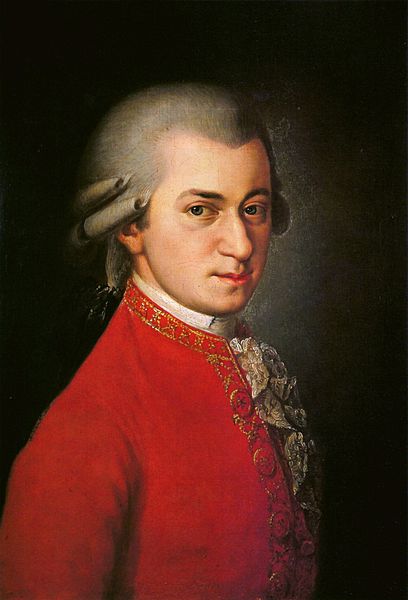
It would be reasonable to say that Einstein was somewhat selective when it came to composers he liked or didn’t like. It would also be fair to claim that Einstein was a huge admirer of Wolfgang Amadeus Mozart. The love affair with Mozart began when Einstein was around thirteen.
It was the Violin Sonatas that really became favorite works for Einstein which he played throughout his life. The Sonata K. 301 in E minor was reportedly one of his most loved and enjoyed.
If ever there was any doubt about how Einstein felt about Mozart, his own words neatly summarize his feelings: “…the music of Mozart is of such purity and beauty that one feels he merely found it-that it has always existed as part of the inner beauty of the universe waiting to be revealed.”
Einstein’s musical beginnings
If you look into Einstein’s schooling you quickly realize that even at the tender age of six, he did not enjoy adhering to conventions and the grades on some of his reports reflect this. (It is claimed by some sources that the grading system was in fact reversed and that a 6 was actually the highest grade where before a 6 had represented the lowest).
What it does tell us is that Einstein understandably had difficulty bowing down to authoritarian teachers who in return, took a dislike to him.
Einstein began to study Violin at around the age of six. He studied with a variety of teachers up until the age of fourteen but found that many of these teachers lacked the spark he was looking for, preferring to concentrate on technical exercises rather than the heart of the music.
In an article by A. Miller in the 2006 New York Times[1], he claims that the young Einstein threw a chair at his teacher in frustration at having to repeat endless technical drills. In spite of the ups and downs of his violin lessons Einstein continued to play the instrument for the rest of his life saying; “I get most joy in life out of my violin.”
Einstein and the Piano
Like many young children Einstein also learned the piano. His mother, Pauline Koch Einstein, was by all accounts an excellent pianist and it was her who tutored Einstein during his early musical explorations.
It is claimed that while improvising at his piano Einstein actually came up with his relativity theory but that is little more than speculation. At first, Einstein showed more promise at the piano than the violin but the violin eventually won first place in the great man’s heart.
Einstein did, however, buy a Bechstein grand piano whilst living in Berlin. This instrument obviously meant a lot to him and he had the piano sent to him across the Atlantic when he took up residence in America in 1933.
This was in response to the rise of the Nationalists in Germany and probably with a clear sense of the imminent danger, it would pose to him as a Jewish scientist.
Composers: likes and dislikes
J S Bach
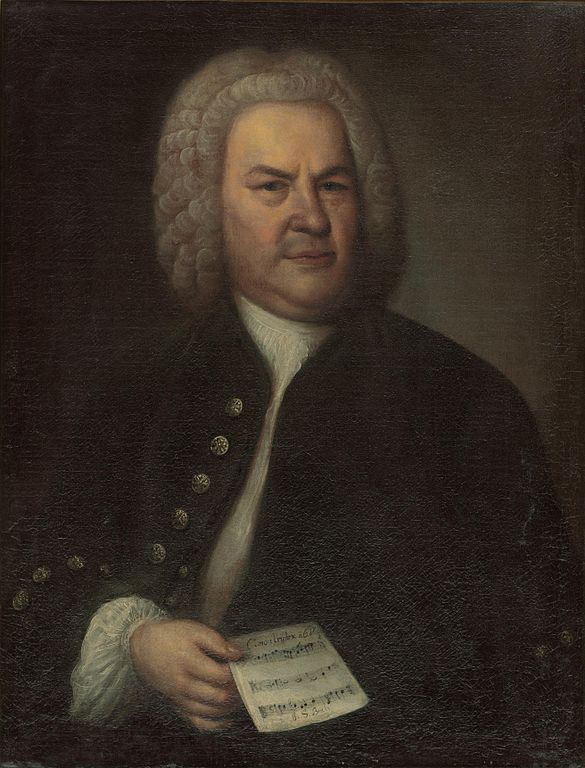
At the very top of the list was clearly Mozart but Bach was also held in high esteem by Einstein. Here is one of the many quotes that illustrate how he felt about the great German contrapuntist; “It is impossible for me to say whether Bach or Mozart means more tome. In music, I do not look for logic. I am quite intuitive on the whole and know no theories. I never like work if I cannot intuitively grasp its inner unity”.[2] We certainly know Einstein enjoyed performing Bach and I suspect the uniquely complex and formal nature of Bach’s work appealed to Einstein’s mind.
Schubert
“Schubert is one of my favourites because of his superlative ability to express emotion and his enormous powers of melodic invention. But in his larger works, I am disturbed by a certain lack of architectonics.” Schubert was another composer who Einstein admired.
We can see from the quote that it was not just structural integrity that Einstein looked for in the works
Depending on how you view Schubert, it could be argued that Einstein had a valid point as Schubert could perhaps primarily be considered to be a celebrated composer of Leider (song) rather than a symphonist. It is in his songs that to my mind, we find the composer Einstein admired most.
Schumann and Mendelssohn
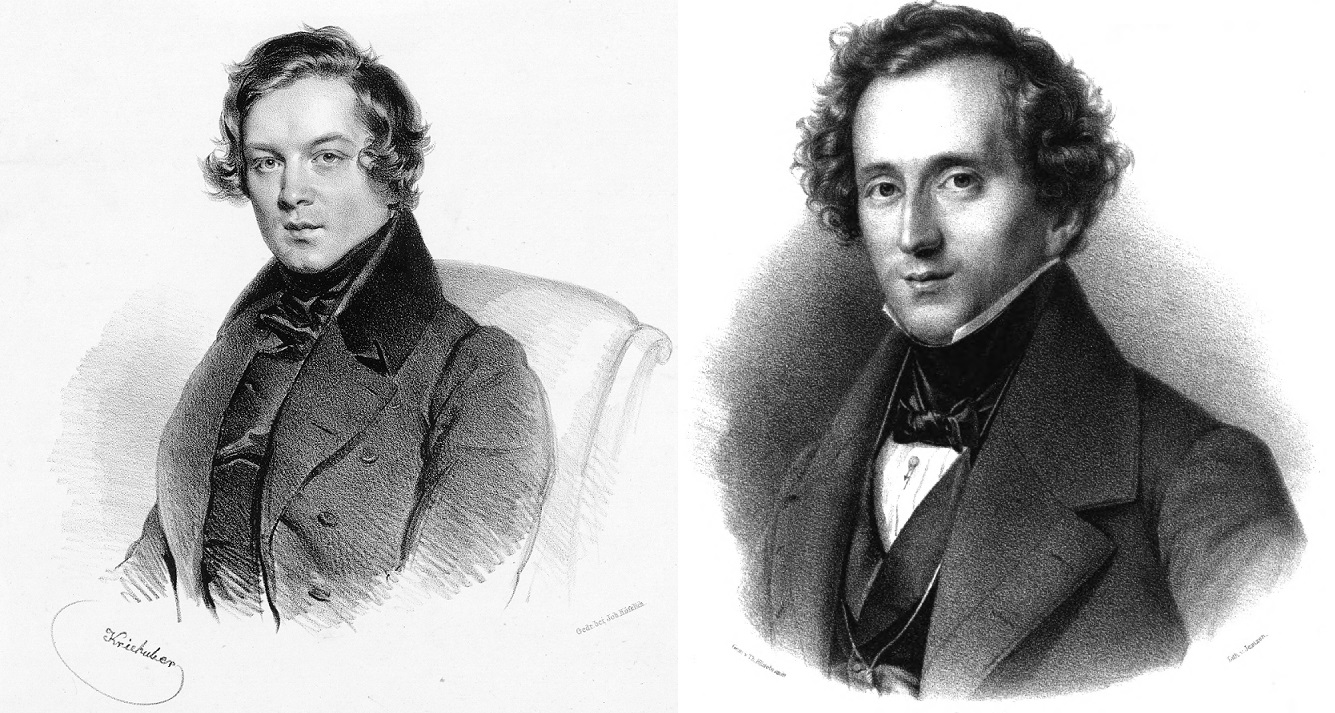
In the quote below, Einstein talks about Schumann and Mendelssohn. Many critics of Schumann would agree with Einstein that it is in his piano works and songs we hear him at his original best, whereas in his larger-scale works the overall shape and structure is not convincing.
The comment about Mendelssohn seems a little unjustifiable, especially in the word banality, which reduces his work to that of mediocrity that simply isn’t true.
“Schumann is attractive to me in his smaller works because of their originality and richness of feeling, but his lack of formal greatness presents my full enjoyment. In Mendelssohn, I perceive considerable talent but an indefinable lack of depth that often leads to banality”.
Handel

Of Handel, Einstein is thought to have said, “I always feel that Handel is good, even perfect, but that he has a certain shallowness”. Like Einstein’s remarks about Mendelsohn, this comment places Handel in a rather unsympathetic light but maybe Einstein felt that in comparison to his beloved Bach, Handel’s work did not compare.
Brahms
Whilst at school in Switzerland it has been remarked upon that Einstein worked very hard on learning the Brahms G Major Violin Sonata. This was because the famous Hungarian violinist of the time Joseph Joachim was performing the Sonata in one of his recitals close to the young Einstein.
Joachim was a major exponent of Brahms’s works and indeed is credited with having recommended him to Schumann whose wife Clara then championed his music following the untimely death of her husband.
In a similar vein to Einstein’s observations about the music of Handel, Brahms does not fair too much better. “I find a few lieder (songs) and chamber works by Brahms truly significant, also in their structure. But most of his works have for me no inner persuasiveness.
I do not understand why it was necessary to write them”. Of musical interest here is the reference to structure again which seems to play such an important role in Einstein’s choice of composer. His response is always intuitive which is how he likes to play.
Beethoven

I have always considered Beethoven and his economic use of musical material to be truly enlightened and his architecture robust. Einstein felt that Beethoven was “too personal, almost naked,” implying that perhaps he struck a too closer chord with this man of science who reportedly played Beethoven’s music with understanding.
Wagner

Of all the many composers, Einstein makes comment on Wagner definitely receives the sharp end of his tongue. If we remember that Einstein narrowly escaped the terrors of the Nazi regime it is not entirely unreasonable for him to find Wagner’s personality as “indescribably offensive so that for the most part, I can listen to him only with disgust”.
Einstein supports his musical critique of Wagner by saying that while he can admire his inventiveness, his “lack of architectural” is little more than decadent. Wagner was notoriously anti-Semitic and even though he wrote music that in many ways encapsulated the Romantic ideals, his views are not easily overlooked.
Bohuslav Martinu
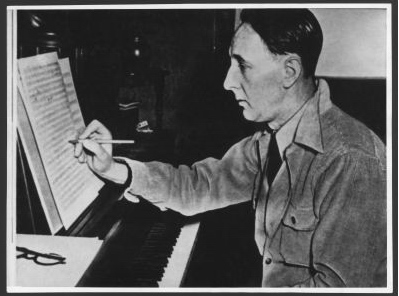
Martinu was a Czech composer who wrote quite an extensive range of symphonies, operas, and ballet scores. Amongst his compositions, he dedicated his “5 Madrigal Stanzas”[3] to Einstein. Both Martinu and Einstein were lecturing at Princeton University in the USA and when Martinu discovered that Einstein was able to give a competent account of some Mozart Violin Sonatas he wrote these five pieces for him.
The speeds of the madrigals are slow to moderate, allowing for Einstein’s musical ability with the actual writing for the violin staying relatively simple. In contrast, the piano part is fairly ambitious, designed with the pianist Robert Casadesus firmly in mind.
One of the most delightful aspects of these pieces is that players of such varying levels of proficiency can perform together seamlessly. The added flavor of Czech folk songs brings a wonderful warmth to the madrigals.
Einstein’s Violin(s)
Einstein had around ten different violins throughout his life, each receiving the nickname of Lina. It was whilst Einstein was playing one of these violins that his second wife Elsa was supposed to have fallen in love with him. She was reported to have said she’d fallen for Einstein as he played the violin “so beautifully”.
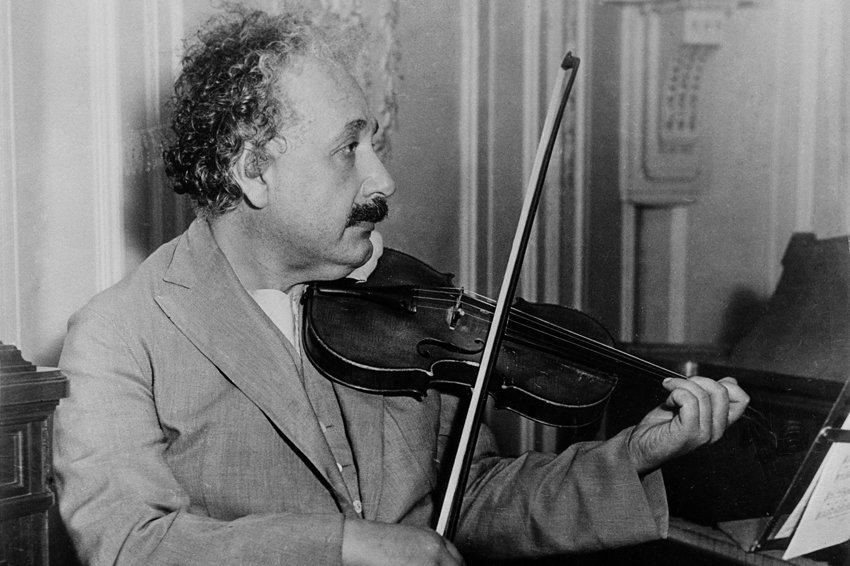
Einstein was apparently offered the opportunity of owning and playing on a Guarneri violin, but instead and modestly chose a less distinguished make. (Guarnerius violins are ranked amongst the very best in the world, alongside Stradivarius.
Towards the end of Einstein’s life, he found that the tone he was producing on his violin no longer pleased him and he gave up completely in the last years preferring instead to improvise on the piano. His last violin was given to his grandson Bernhard Caesar who kept it safe until his death in 2008.
Einstein on Tour
Einstein throughout his life had many invitations to lecture across the world. Early in his career between 1923-33, Einstein toured the Far East including Japan. It was in Japan that he heard for the first time, traditional Japanese music.
Einstein noted in his journal, “Of great interest to me was Japanese Music.” He was referring in particular, to have heard JapaneseNoh music that is a traditional form of music that includes dramatic and dance elements and dates back to the 14th Century. It may well have been the formality that surrounds this type of music that appealed to Einstein.
Famous People
Arthur Rubenstein
During such a distinguished career it is not entirely surprising to learn that Einstein was friends with many people of historical importance. One of the most notable musical connections amongst the famous is with Arthur Rubenstein.
Rubenstein was a classical pianist born in Poland in 1887 and recognized as being one of the greatest interpreters of the music of Chopin. Einstein and Rubenstein used to play together. On one of these occasions, Rubenstein is supposed to have made the comment, “For God’s sake professor, can’t you count to four?” Einstein is supposed to have always experienced difficulty with musical counting but the validity of that comment is perhaps unworthy of him.
Artur Schnabel
Another well-respected concert pianist Artur Schnabel (1882-1951), also played with the violinist Einstein. Like Rubenstein’s comment above these two men also experiences some rhythmic discrepancies when they played together. Whilst rehearsing the second movement of a Mozart Sonata Einstein apparently got lost, provoking the response from Schnabel of “Albert, can’t you count?”
Fitz Kreisler
One of the most respected violinists of the time was a man named Fritz Kreisler (1875-1962). Kreisler’s technique and tone were second to none and in fact, he played on the same make of violin that Einstein had the modesty to decline: The Guarneri. Einstein and Kreisler reportedly played and rehearsed together on a number of occasions.
Max Planck
This is another scientific name that will resonate amongst many of you. Max Planck (1858-1912) is now remembered as the man who developed ‘Planck’s constant.’ Like Einstein, Planck was also a gifted amateur musician who sang and played the piano and organ. Planck and Einstein played together throughout their professional lives finding not only a shared desire for fundamental scientific, even universal truth, but also a tremendous love of music.
Werner Heisenberg
Heisenberg is renowned for his uncertainty principle. It is claimed that the two physicists did not like one another very much but did share a love of music, and supposedly did occasionally play together.
John Coltrane and Einstein
A reasonable question would be what can a Nobel prize-winning scientist and a be-bop jazz saxophonist have in common? The answer is the use of improvisation and intuition alongside the technical facility.
Coltrane was a major innovator who stepped out of the confines of the type of jazz he experienced around him. He redefined many structural and harmonic elements of jazz music as Einstein created a whole new vision of our universe. Both men were musicians and both knew that by trusting intuition and playing Stephen Alexander titled “The Jazz of Physics”).
Philip Glass and Einstein
The world-acclaimed minimalist American composer Philip Glass wrote an opera in 1976 called “Einstein On the Beach”. It is not as you might anticipate, a story chronicling the life of Einstein but does include a violin player who vaguely resembles the eminent scientist and a beach. It is scored for a selection of synthesizers, woodwind instruments, and voices that support the staged activity.
The entire opera is a bit of a marathon as it lasts for around five hours without any intervals. It comprises four interconnected sections that include dance. Essentially it is not a narrative at all and quite challenging to watch. This is perhaps why Glass invites the audience to come and go as they please during the performance. Given Einstein’s musical preferences I suspect this opera would have left him perplexed and disinterested.
Ernest Bloch
Bloch was a Swiss-born composer (1880-1959) who has on many occasions been likened to Beethoven. The Ernest Bloch Society (http://www.ernestblochsociety.org/index.html ), was founded in 1937 in London with Albert Einstein made an honorary officer. These offices were also afforded to notable individuals like Sir Arthur Bliss and Sir Thomas Beecham.
Princeton President
Einstein was made the President of the Princeton Symphony between 1952-55. When Einstein died they held a memorial concert that as Einstein would have thoroughly approved of, including Bach’s Cantata No. 106.
Movies about Einstein
Einstein is probably the most celebrated scientist who ever lived, possibly with the exception of Newton. Whilst it is not the purpose of this article to deal with some of the more fanciful examples of movies about Einstein here are a few worthy of consideration.
Einstein and Eddington (2008)
Inside Einstein’s Mind: The Enigma of Space and Time (BBC4: 2017 – (http://www.bbc.co.uk/programmes/b06s75vs)
Genius: Einstein (2017 – National Geographic)
Einstein’s Musical Quotes
Einstein, aside from Mark Twain, is one of the most quoted people to have existed. Here are a selected number of quotes from Albert Einstein that I find the most engaging as they provide a genuine insight into how he felt about music.
“Life without playing music is inconceivable for me.”
“I live my daydreams in music, I see my life in terms of music.”
“If I were not a physicist I would probably be a musician.”
“Life is like a Piano, what you get out of it depends on how you play it.”
“It occurred to me by intuition, and music was the driving force behind that intuition. My discovery was the result of musical perception.” (This quote is alleged as a result of Einstein being asked about how his theory of relativity came to him).
“Music helps him when he is thinking about his theories. He goes to his study, comes back, strikes a few chords on the piano, jots something down, returns to his study.”(Einstein’s wife Elsa).
[1]http://www.nytimes.com/2006/01/31/science/a-genius-finds-inspiration-in-the-music-of-another.html
[2] “Albert Einstein: The Human Side” (1981) pp.76-7, edited by Helen Dukas and Banesh Hoffman, PrincetonUniversity Press ISBN 0691023689


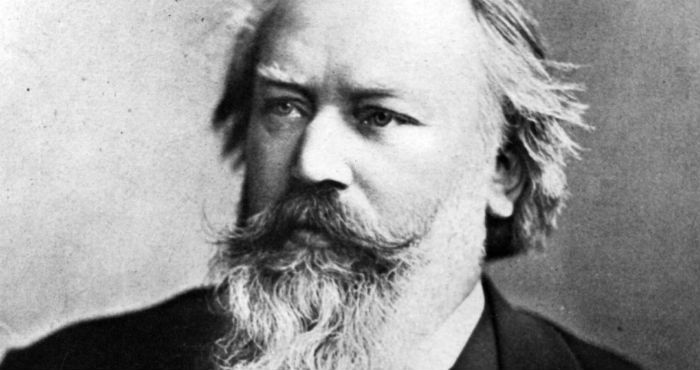
The language of music is the language of the Universe. I knew that Einstein was a highly skilled musician but there was deeper knowledge about his admirings and relationships between him and the greatest composers. Very interesting details💜💫💜
Yes indeed–I had the same obfuscation.
The E minor sonata is “Ludwig von Köchel Number 304.”
“Ludwig von Köchel Number 301, is Violin Sonata No. 18 in G major
Best thing to do is listen to both, then try to read Einstein’s mind as to which he liked best.
Also, research into whether Einstein had a pianist to accompany him.
See Von Köchel numbers:
The last sentence of this article “The Sonata K. 301 in E minor was reportedly one of his most loved and enjoyed.” is not accurate. Sonata K. 301 is in G major. Am I correct?